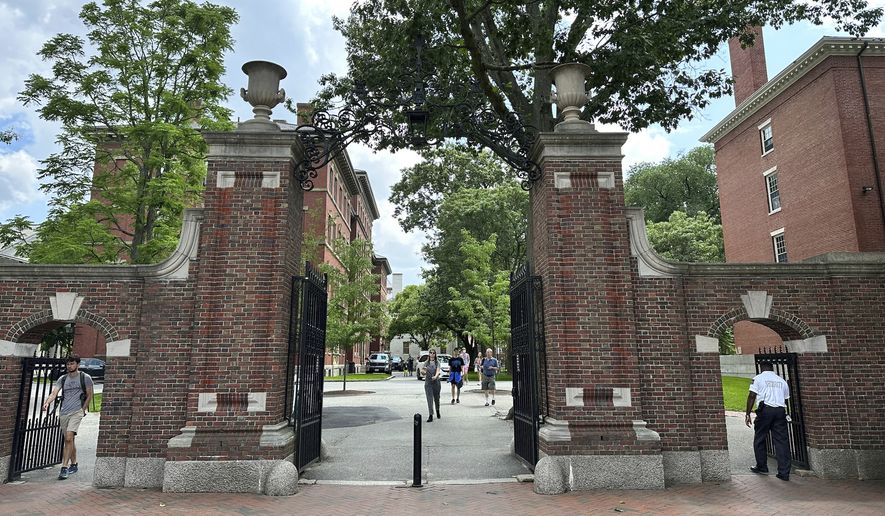Dear Dr. E: My husband and I are Christians, and we are wrestling with deciding where to send our son to college. My husband thinks we should limit our options to conservative Christian schools. Because of our son’s IQ, I think we should consider letting him attend a more prestigious secular school. After all, there are campus ministries nearby, and he can get involved in a good church, so he’ll be OK. What do you think? — Wanting What’s Best for Junior, from Pittsburgh
Dear Wanting: Let’s assume you’re right. Let’s assume your son enrolls at the most prestigious school on his list, that he gets involved in a para-church organization, and that he starts attending a good church. And let’s assume that as a result, he doesn’t get involved in the party scene, doesn’t get addicted to drugs, doesn’t get drunk all the time, doesn’t get anybody pregnant, and doesn’t contract an sexually transmitted disease.
Let’s assume that four years later, he graduates having stayed out of all this trouble. Is that your measure of success and what you wanted out of his college experience?
If so, aren’t you setting the bar awfully low?
Just because he avoided these dysfunctions and diseases doesn’t mean he received a good education. Isn’t education supposed to teach more than that? Are you really going to measure the success of his education based on his avoidance of immorality and sexually transmitted diseases?
If so, I’m not sure what value you’re placing on education.
The data shows that 70% of the students who pursue a university education will lose their faith by the time they’re juniors. Some of those students come back to their core convictions, but it’s not a lot. Many students leave because their views change, they dislike organized religion, or they’re unsure what to believe, no thanks to the fact that they’ve spent the past four years in a community that disparages the assumption of truth, mocks the concept of morality, and laughs at even the thought of character development. Are you going to bet the farm your kid is in the 30% who stay committed?
Unfortunately, most parents do. Even many home-schooling parents who sacrifice everything for those first 18 years of their son’s or daughter’s life often become overconfident and think getting their child into a prestigious secular school somehow affirms their home-schooling prowess. I can’t tell you the number of parents who have approached me with broken hearts because they sent their students to Ivy League colleges and similar schools and watched their souls get washed away by political indoctrination.
The educational path we choose says something about what we believe. T.S. Eliot once said, “In choosing one definition [of education] rather than another, we are attracted to the one because it fits better with our answer to the question: What is man for?”
Our educational paradigms flow directly from the biases we hold concerning the very definitions of who we are, why we are here, and what we are obligated to do about it.
John Piper offers this superb summary of what the best education should be: “The [best university includes] a faculty made up of great Christian thinkers who are great lovers of God with profound allegiance to the truth of God’s Word and razor-sharp discernment of all the subtle idols of our age. What is needed is great teachers with great hearts for the great old verities of the faith — verities that they hold because there are great reasons for holding them — reasons that will stand up to hard questions. … Our problem is not that ’indoctrination’ is the only alternative to education. It isn’t. Our problem is that so few have ever tasted great Christian education or seen great Christian thinking going on from a profoundly God-centered perspective in an atmosphere where students can feel that the faculty would gladly die for Jesus.”
Every parent should remember that there is no such thing as “value-neutral” education. No professor enters the classroom without an agenda. With that in mind, the question you must ask is, what is education for?
Is your choice of a college or university for your son more about obtaining a career or acquiring more character? Is his degree going to be about earning more money or instilling more morality?
At the end of the day, will your son graduate learning more about God, or will he be indoctrinated to believe he is God?
Higher Ground is there for you if you’re seeking guidance in today’s changing world. Everett Piper, a Ph.D. and a former university president and radio host, is writing an advice column for The Times, and he wants to hear from you. If you have any moral or ethical questions for which you’d like an answer, please email askeverett@washingtontimes.com, and he may include it in the column.




Please read our comment policy before commenting.